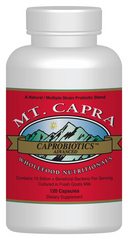February 7, 2009
 John Gilbert is a student in Human Nutrition & Metabolism at Washington State University. He is currently interning with Ben Greenfield, and will soon be available at Ben’s Spokane, Washington facility as a nutrition and fitness consultant…e-mail [email protected] if you’re interested in enlisting the help of John in achieving your goals…he’s a great guy, we promise.
John Gilbert is a student in Human Nutrition & Metabolism at Washington State University. He is currently interning with Ben Greenfield, and will soon be available at Ben’s Spokane, Washington facility as a nutrition and fitness consultant…e-mail [email protected] if you’re interested in enlisting the help of John in achieving your goals…he’s a great guy, we promise.
Did you get a chance to read the last blog article I wrote on nuts?
Were nuts a great snack and/or ingredient to your dishes? How did you feel before and after eating the nuts? Did the nuts enhance satiety? The addition of nuts in the newsletter was to provide another nutrient dense convenient food in your ever-growing cornucopia of nutritious delicious whole foods. These foods are intended to provide delight for your appetite and act as your arsenal in combating hunger to lose weight and feel great!
In future weeks, we will be highlighting more foods with these multifaceted benefits of overall health, weight loss, performance enhancement, and palate pleasure. For those with nut allergies, I apologize for the exclusion last week. However, this week’s topic may aid in alleviating some of those food allergies.
This week’s focus will be pertaining to probiotics.
These microbiological living organisms are currently under scrupulous research as to their benefits in human health. Referred to as an “adjuvant” (helpers) in preventing chronic diseases in certain studies, probiotics have a great deal of potential in avoiding undesirable conditions such as the common illness and digestive problems. Much of the research has focused on the benefits for our immune system and digestive tract.
However, Laura Johannes, the author of the article, “Bug Crazy: Assessing the Benefits of Probiotics” highlights some interesting outcomes of research you may have not heard of. Although Johannes is not established as a nutrition expert, in not being a Registered Dietitian (RD), she provides support for a vast array of interesting claims for probiotics with evidence-based research.
The main message that needs to be communicated with probiotics is that the research is still inconclusive in many areas, prompting caution before you go out and buy every probiotic associated food you can. I wish I could tell you the exact foods to eat for specific health outcomes, but there is simply not enough evidence to do so without controversy at this time. Therefore, please read this article carefully, paying special attention to statements like:
-“Consume a variety of different bacteria, as each may contribute something slightly different.”
-“Probiotics are generally considered safe to eat, but scientists say people with immune deficiencies should consult their doctor first.”
-“Look for the word “live” on the package, since organisms killed by processing won't be helpful”
-“Respecting the expiration date is particularly important”
These types of statements will help guide you in the receiving the most benefit from probiotic containing foods.
When reading the article, please note that specific companies are not necessarily being endorsed, rather, research outcomes are being presented that utilized the products. Keep in mind that home made yogurt and fermented whole foods like pickles or sauerkraut have beneficial probiotics (with potentially better absorption than commercially constructed probiotics).
Also be aware that stomach acid can destroy certain strands of probiotics, which further substantiates consuming a wide variety of sources. Employing the key generalized statements about probiotics from the article will surely help you avoid sickness and subsequently be more productive in accomplishing your goals of health, productivity, and possibly performance (e.g. digestive tract problems that may occur during training or competition, or even the ability to train more in avoiding sickness). Athletes should keep especially mindful of their immune system, as overtraining can impair its function.
This week’s goals:
Consume 5 probiotic sources on 5 separate days…
– At least 3 different sources
-Low-fat yogurt with:
– low-fat granola
– nuts
– fresh fruit
– yam or sweet potato
– strain out water with cheese cloth and substitute for sour cream
– on salad as salad dressing
– as dip for vegetables
-Pickles:
– plain
– on sandwich
– in multiple recipes
-Sauerkraut (fermented cabbage):
– as side dish with dinner
– on sandwich
– kim chee (Korean dish)
– in multiple recipes
-Miso (fermented soybean paste):
– Miso soup
-Kefir
-Buttermilk
-Low-fat sour cream
-Enriched low-fat cottage cheese
-Acidophilus milk
-Mt. Capra Probiotics (use discount code 5% BGF)
In order to consume less calories without feeling deprived, remember to:
– Eat slowly and enjoy your food
– Consume the highest fiber containing food first
– Pair food ingestion with water
– Include some healthy fat and lean protein at each meal and/or snack.
Enjoy!
John Gilbert
Washington State University
Exercise Physiology and Metabolism
[email protected]
A P.S. from Ben Greenfield: Thanks for the great article, John. If you didn't have a chance, make sure you listen in to the related Podcast Episode #16, which gives even more information on probiotics and digestive enzymes.
If you have specific topics, articles, videos, or information you'd like to see at BenGreenfieldFitness.com, just shoot Ben an e-mail.
